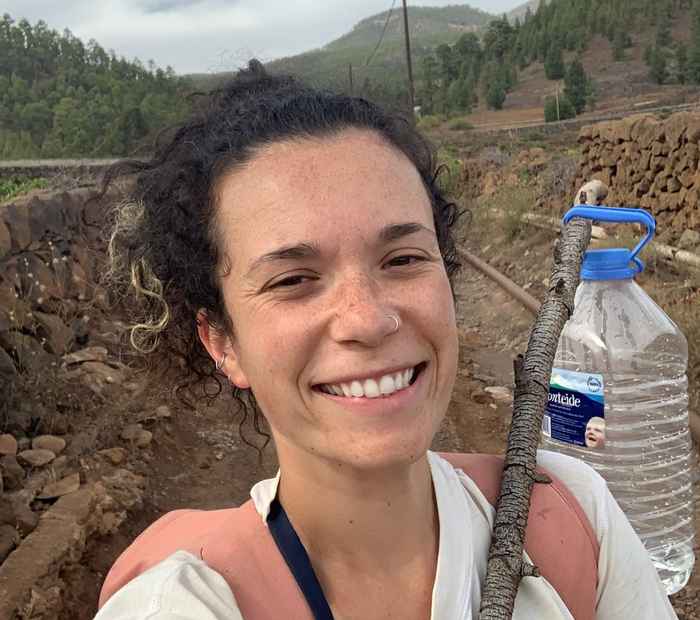Itxaso Garay Morrissey

“The Vulnerable Earth course, part of the Earth System Science Master’s program, was an amazing experience that combined fieldwork, learning, and getting to know my classmates. It was the only time the whole year group—including both the Environmental Management and Earth System Science tracks—came together, making it a great opportunity to connect with everyone.
The course's main goal was to develop a mock thesis abstract, using data we collected during our fieldwork in Tenerife. Most of the project work—like planning, data analysis, writing, and presenting—happened back in Amsterdam, but the fieldwork on the island was mandatory and central to our research.
Preparation for the trip was a mix of advice from the program and figuring things out on our own. The program gave us some guidance on research topics and data collection methods, but a lot of the logistical and technical details were up to us. For example, we had to find and interpret geomorphology maps, identify geological structures, set up survey plots, and categorize plant samples, all based on our background research from Amsterdam.
The trip started with a few days of field excursions led by our lecturers and local experts, giving us a good overview of the island’s landscape. After that, we dove into our individual research projects. A typical day involved getting up early, catching a bus to a spot near our field sites, then hiking out to our specific study areas.
We spent the day collecting data—often in tough, remote conditions—before heading back in the evening to our shared houses, where we’d finish up data collection, make dinner, and unwind. We had one free day while there and we went to the closest beach to relax, swim, and snorkel.
The experience really threw us into Master’s-level research, which is more independent and intense than undergrad work, but ultimately more rewarding and interesting. It is a big step up from Bachelor’s work, but it was a great way to build important research skills. The highlight for me was getting to know my classmates, especially my research partner, Nina. Even though the research was hard work, we had a blast exploring the island together. At the end of the day, we got to scamper around and hike a beautiful, volcanic island.
My tips? Bring plenty of water, be ready to change or even ditch your plans, be prepared to get dirty, stay open-minded, and definitely check out Bobby’s #2, an awesome Indian restaurant in Tenerife."